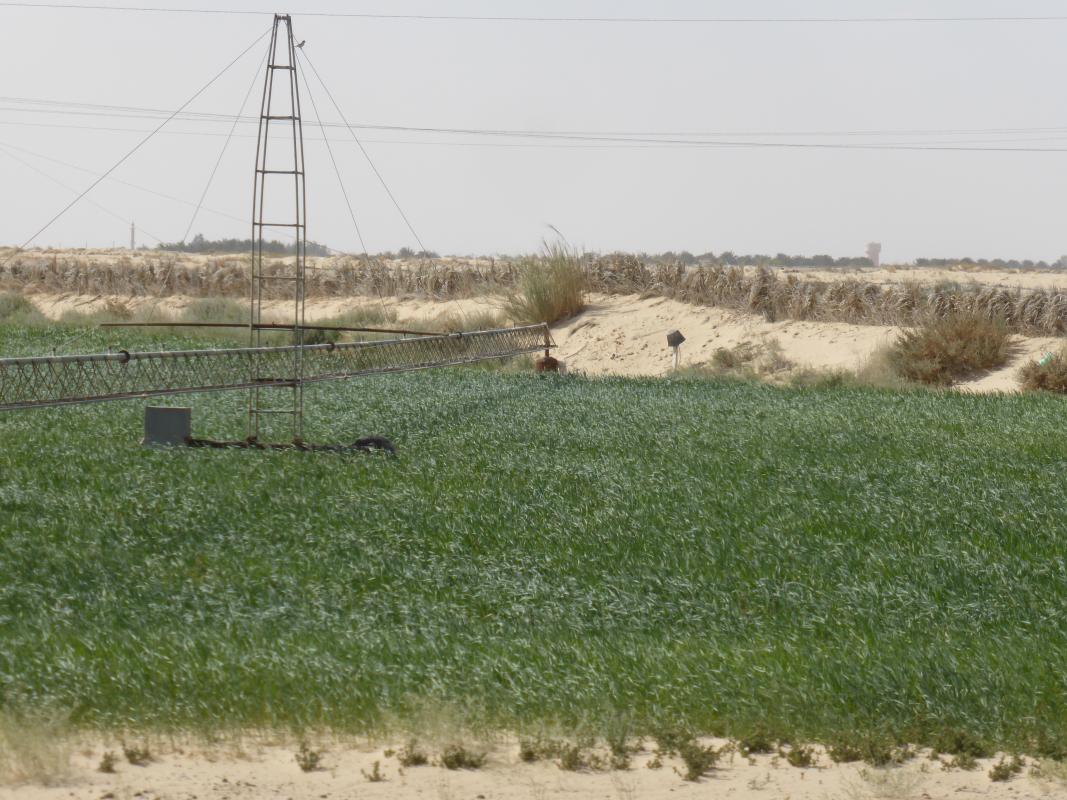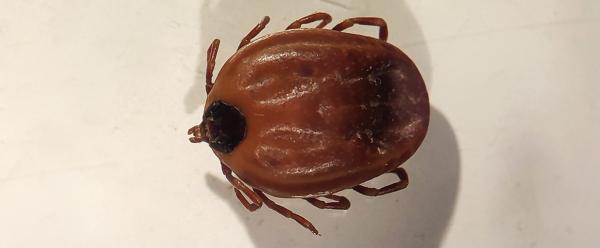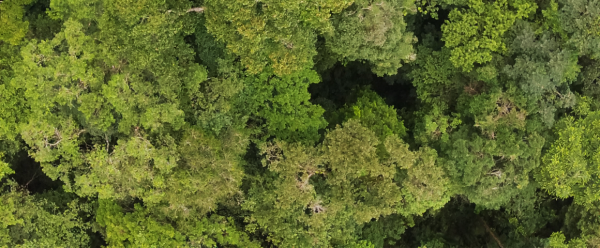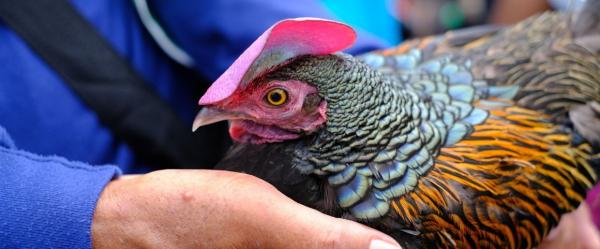Science at work 9 April 2024
- Home
- Press area
- Press releases
- Innovation for better water resource management in North Africa
Food security: innovation for better water resource management in North Africa

Centre-pivot irrigation system developed by artisans in southern Algeria © M. Kuper, CIRAD
Some inland parts of Morocco, Algeria and Tunisia are undergoing rapid agricultural expansion, the pace of which is increasing pressure on water resources. These resources are being depleted, which could create inequalities and threaten the sustainability of farming activities in these areas.
“Water plays a fundamental role in all ecosystems. Water resource management is therefore a central concern in global strategies and policies on sustainable development and food security”, said Stefano Farolfi, a water management expert at CIRAD, during the launch of the MASSIRE* project in Rabat on 2 May. “Contributing to improving water efficiency for agricultural purposes, especially collective uses, and facilitating coordination between stakeholders in order to share this resource between different uses and to preserve its quality is also one of the 15 commitments CIRAD has made in its new strategic vision", he added.
“With climate change, water management is a major scientific and development challenge”, said CIRAD President Managing Director Michel Eddi during the signing of the framework agreement with IFAD on 29 April for the financing of the MASSIRE project.
The goal of this four-year project is to work in cooperation with local actors - especially young women and men from rural areas engaged in small family farming - to identify and test technical innovations (subsurface drip irrigation, new solar pumping technologies, wastewater reuse) and organizational innovations (water governance, innovation systems). The aim is also to explore the irrigation and agricultural practices, often inspired by agro-ecology, that have the greatest potential for increasing the resilience of these territories. The project will assess the impact of these innovations and the adaptations needed to address environmental and societal changes.
“The challenge for the project is to place small family farmers at the heart of sustainable agricultural and rural innovation systems, where they will be able to work continuously with innovators”, says CIRAD’s Marcel Kuper, Coordinator of the MASSIRE project. The project will thus strengthen the capacities of these water management stakeholders, through training and networking. It will develop a knowledge network at the North African level linking young rural women and men from marginal areas to other stakeholders, including irrigators’ associations, farmers’ cooperatives, NGOs, authorities, researchers, and also local start-ups.
“IFAD mobilises effective partnerships capable of leveraging their different comparative advantages and expertise, to ensure this community of effort translates into greater impact” , says Naoufel Telahigue, Director of the Sub-Regional Office and Country Director within IFAD’s Near East, North Africa, Europe and Central Asia Division. “The MASSIRE project will help to improve the capacities of rural populations and their access to the assets, technologies, services and markets they most need to enable them to set up agricultural enterprises that are both profitable and sustainable.”
* MASSIRE: integrating multiple water sources and local institutions to improve food security
The MASSIRE project is led by the different institutions within the SIRMA platform in partnership (dP), which has been supporting agricultural water stakeholders in North Africa for almost 20 years. INAT and INRGREF in Tunisia, CREAD and CU Tipaza in Algeria, ENA Meknes and IAV Hassan II in Morocco, and CLERSE/Lille and IRSTEA in France.


























